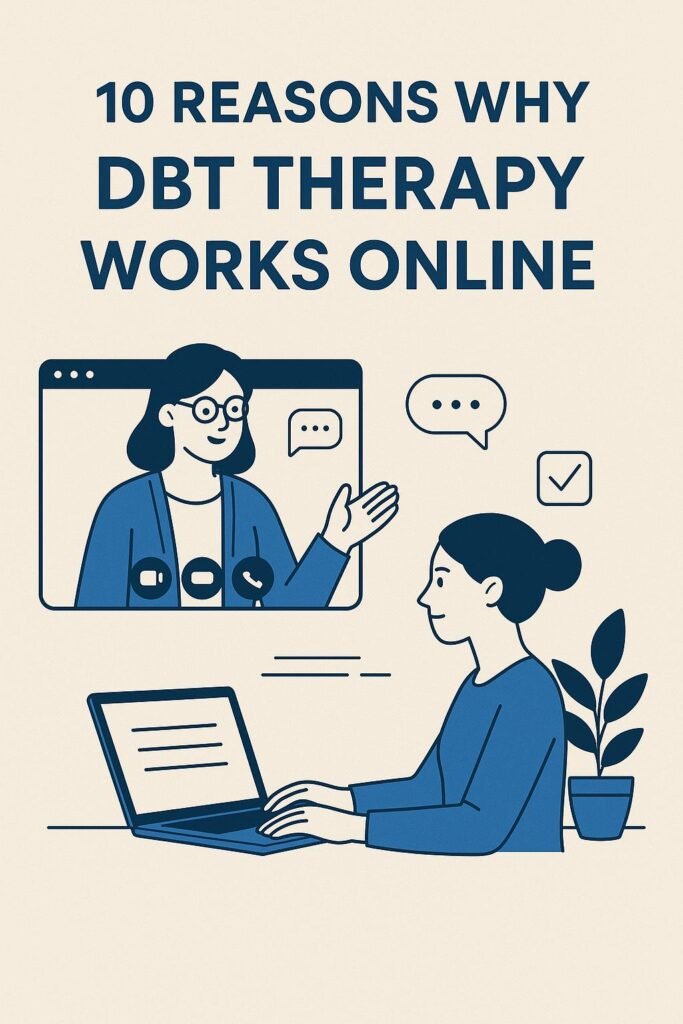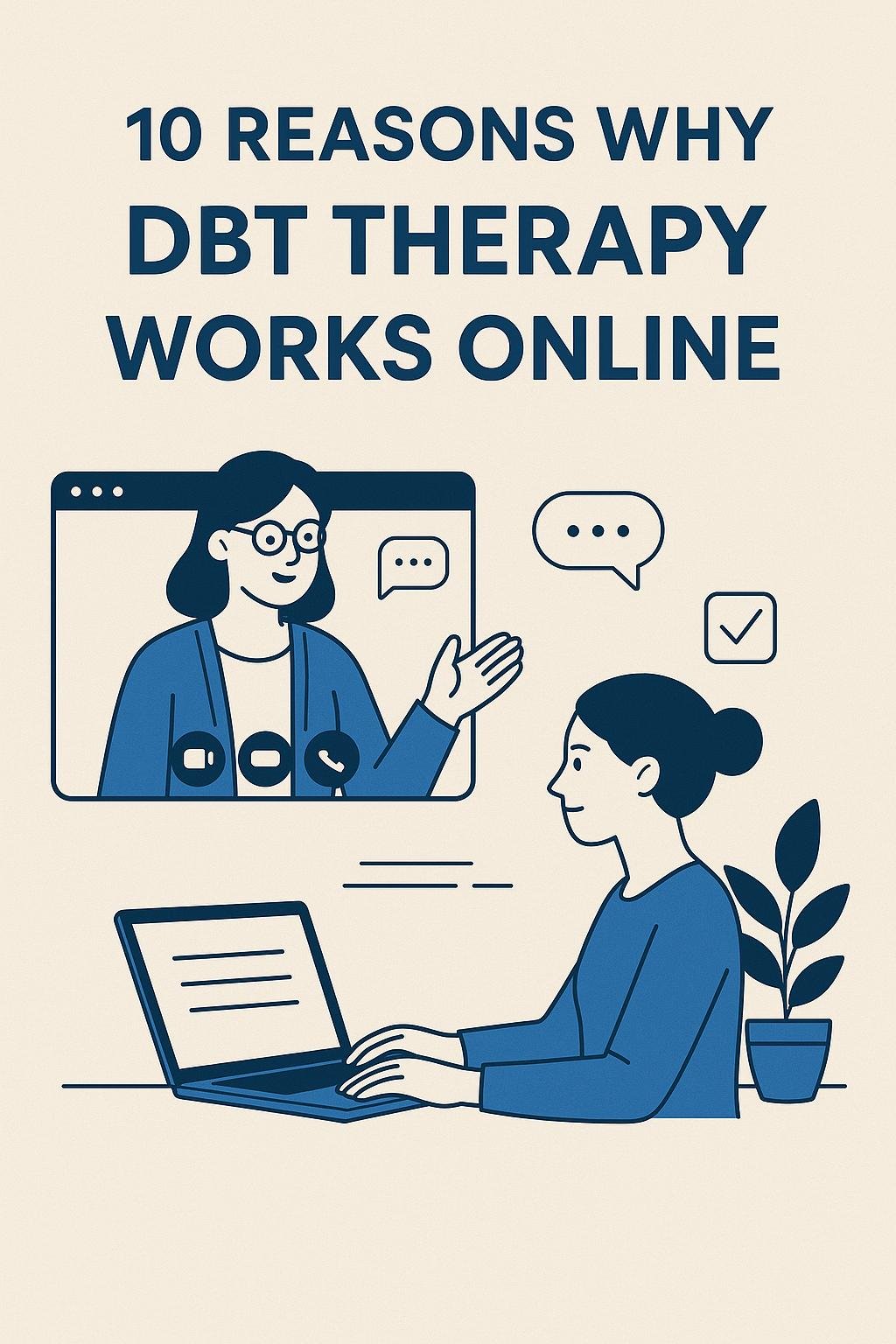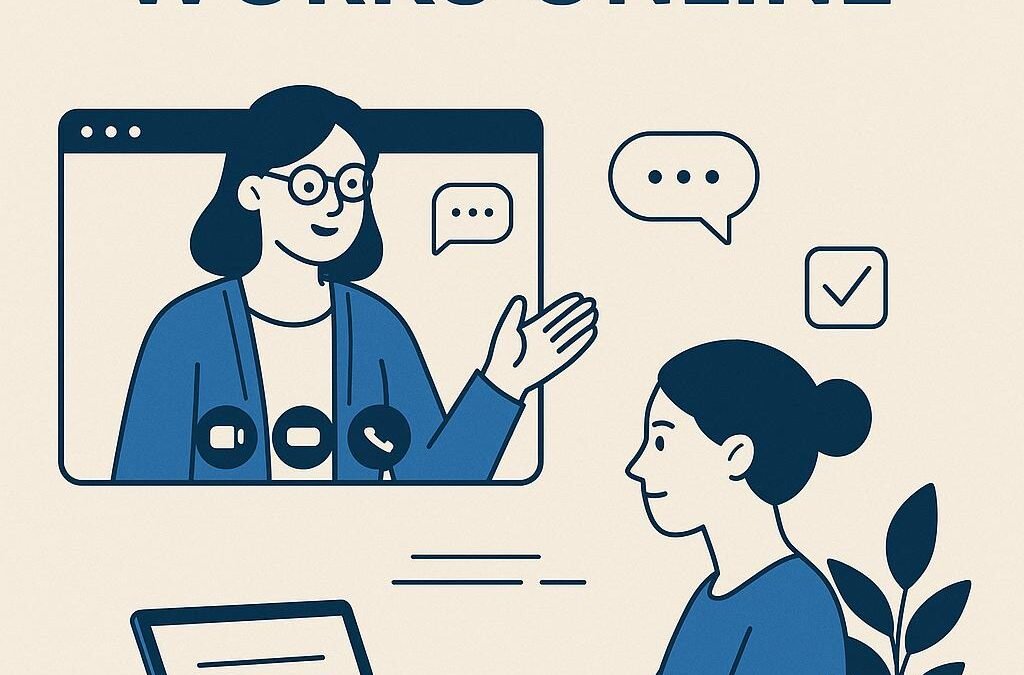Dialectical Behaviour Therapy (DBT) has long been recognised as a leading therapeutic approach for individuals struggling with emotion dysregulation, self-harm, relationship instability, and traits associated with Borderline Personality Disorder (BPD). Developed by Dr. Marsha Linehan, DBT combines elements of cognitive behavioural therapy with mindfulness, acceptance, and dialectical thinking.
Traditionally delivered in person, DBT therapy has evolved significantly in the digital age. Today, DBT online is a proven, accessible, and often preferable alternative for many clients. Below are ten compelling reasons why DBT therapy works so well online, both clinically and practically.
1. Increased Accessibility
Online DBT breaks down geographical and logistical barriers. Clients no longer need to travel to a therapy centre, take time off work, or struggle with mobility challenges. Whether someone lives in a remote village or a busy city, DBT Therapy brings evidence-based treatment directly to their home. This accessibility has been crucial for individuals who may otherwise face long waiting lists or lack of local DBT-trained therapists.
2. Flexible Scheduling
The structure of DBT typically involves weekly individual sessions, group skills training, and between-session coaching. Online delivery allows for greater flexibility in scheduling all components. Clients can attend sessions during lunch breaks, after work, or even from another country if travelling. This flexibility supports higher attendance rates and encourages long-term engagement with the full DBT programme.
3. Comfort and Safety of Home
DBT therapy for BPD especially in its early phases, can be emotionally intense. Discussing issues like suicidal ideation or past trauma requires a sense of safety. For many clients, the ability to attend sessions from a familiar environment—such as their bedroom or living room—lowers initial resistance and anxiety. It fosters a sense of containment, which can improve emotional regulation during and after sessions.
4. Maintained Structure and Fidelity
A common concern about delivering therapy online is the potential loss of structure. However, DBT online retains all four standard components of the treatment: individual therapy, group skills training, phone coaching, and therapist consultation teams. With the right technology and therapeutic protocols, the fidelity of DBT remains high. In many services, clinicians use secure platforms that allow for screen sharing, virtual handouts, breakout rooms, and whiteboards—replicating in-person tools in a digital format.
5. Enhanced Digital Tools
Online DBT therapy often integrates well with mobile apps, mood tracking tools, and online skills diaries. Clients can complete mindfulness logs, emotion regulation worksheets, and chain analysis exercises digitally—allowing for real-time feedback from therapists. These tools can enhance self-monitoring and skill application, making the learning process more interactive and immediate.
6. Greater Anonymity and Reduced Stigma
For some individuals, especially those new to therapy or struggling with shame, online therapy offers a degree of anonymity that feels safer. They don’t have to sit in a waiting room, walk into a mental health clinic, or engage in potentially uncomfortable social interactions. This discreet format lowers the threshold for engagement and can be particularly empowering for clients with social anxiety or trauma histories.
7. Increased Family and Carer Involvement
DBT online makes it easier to include partners, parents, or carers in the therapeutic process when appropriate. Psychoeducation, family skills sessions, or collaborative problem-solving meetings can be arranged online without requiring everyone to be physically present in one place. This can strengthen support networks and help reinforce DBT principles in the home environment.
8. Continuity During Crises or Travel
One of the greatest strengths of DBT online is its adaptability in times of crisis. During the COVID-19 pandemic, many DBT programmes transitioned to online delivery without significant loss of effectiveness. Similarly, clients who move house, go to university, or travel for work can maintain continuity with their therapist and skills group. This consistency is critical in DBT, where therapeutic commitment and momentum are vital for change.
9. Therapeutic Alliance Can Still Flourish
Some sceptics believe that strong therapeutic relationships are harder to build online. However, studies and clinical experience show that therapeutic alliance—the trust and connection between client and therapist—can be just as strong in a digital format. Therapists trained in DBT therapy online often report that clients open up more quickly, especially younger people who are already comfortable with digital communication.
10. Evidence Supports Its Effectiveness
Emerging research supports the clinical effectiveness of DBT online. Randomised controlled trials, pilot studies, and service evaluations have found comparable outcomes between online and face-to-face DBT. Improvements in suicidal behaviour, emotion dysregulation, and self-harming tendencies have all been observed in online cohorts. For many clients, the medium does not compromise the message—change is possible whether DBT is delivered in a room or on a screen.
Conclusion
DBT online is not a second-best option—it is a robust, flexible, and clinically sound way to access life-changing therapy. For individuals seeking structured, skills-based treatment for complex emotional difficulties, online DBT offers all the essential components without sacrificing depth or connection.
At its heart, DBT therapy teaches people how to live more mindfully, regulate intense emotions, navigate interpersonal relationships, and build lives worth living. These goals remain entirely possible in an online setting—and for many, they become more achievable when therapy meets them where they are.
Whether you are a prospective client, clinician, or family member exploring DBT, the online format is worth serious consideration. The evidence is strong, the tools are effective, and the outcomes can be transformative.
If you’re considering DBT online, our experienced team at DBT London offers fully remote DBT therapy in line with gold-standard treatment protocols. Contact us today to learn more or book an assessment.



